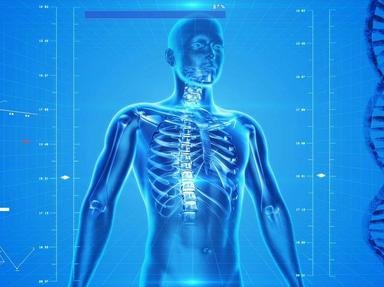Quiz Answer Key and Fun Facts
1. In the adult, blood cell production takes place where?
2. What is the normal lifespan of red blood cells, the predominant white blood cells, and platelets, in that order?
3. The skin of the hand is more sensitive to heat than the lining of the mouth.
4. Which of the following is not a function of the liver?
5. How does the eustachian tube help clear your ears with changes in altitude or pressure?
6. The intervertebral discs, located between the vertebrae of the spinal column, have a gel in the center.
7. Which of the following most resembles a true ball and socket joint?
8. What is proprioception?
9. Where is there no actual sphincter muscle (an annular muscle which intermittently prevents access across it)?
10. Which of the five senses is not completely dependent on the twelve pairs of cranial nerves?
Source: Author
jstagamtome
This quiz was reviewed by FunTrivia editor
crisw before going online.
Any errors found in FunTrivia content are routinely corrected through our feedback system.


